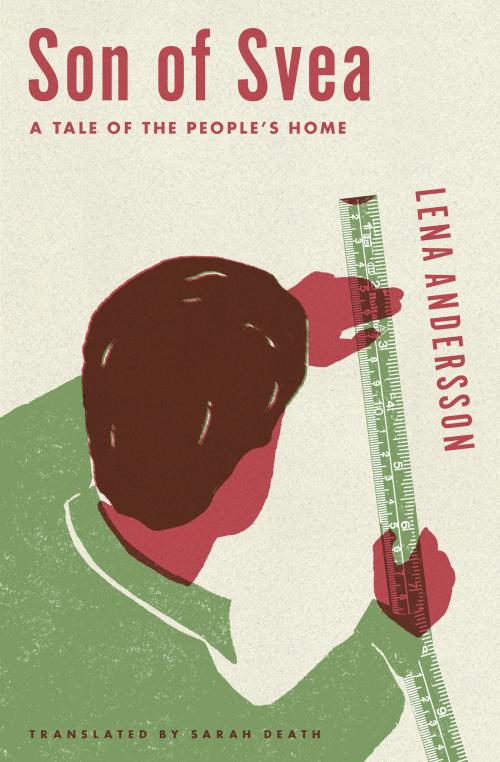“Astute…circuitous, laugh-out-loud wit, adroitly captured in Sarah Death’s elegant translation. For all his insistence on absolutes, Ragnar is mired in ambivalence. It’s what keeps his twisted logic fresh, even as he ages, and his country, along with his children, evolves beyond the plot he’s imagined for them.” —Maya Binyam, New York Times Book Review
“Andersson’s writing is concise and direct, and it moves quickly, like an argument…Her mind is always reaching for the fascinating and unexpected conclusion.” —Sheila Heti, New York Review of Books
“Illuminating…Andersson has a sure hand in calibrating the account of Ragnar’s life to match the contours of the changes that sweep his country.” —Publishers Weekly
“Intellectual, agile, sharp, occasionally uncomfortable, always uncompromising, Son of Svea is a novel about modern Sweden from our most important voice, Lena Andersson. Her crystal-clear prose shapes Son of Svea into an absolute gem of a book.” —David Lagercrantz, #1 bestselling author of The Girl in the Spider’s Web
“Lena Andersson’s epic novel moves through a century of Scandinavian idealism like a winter storm. Son of Svea opens with the founding of social democracy, roars on through the rise of the welfare state and the murder of Olof Palme, and reaches an icy end in the ex-utopian Stockholm suburbs. Lena Andersson has an unparalleled eye for how ideology and family life interweave, turning the myths of modernism into something warmer and more intimate. Andersson’s novel is a powerful ode to the humble people who gave Scandinavia the one thing America misses most of all: upward mobility that is more than just a dream.” —Mikkel Rosengaard, author of The Invention of Ana
“Son of Svea is a sharp, skillful look at social democracy and the welfare state in Sweden through the life of Ragnar Johansson—a determined and at times infuriating ‘ordinary’ man who rises and recedes with the political movement. Born to a working-class father and an uneducated mother from the countryside, Ragnar sees the state as the answer to all of life’s problems, despite his own confusion and ambivalence about the world and his place in it. His mother, Svea; wife, Elisabet; and children, Erik and Elsa, are forced to contend with Ragnar’s fervent, sometimes cruel and fanatical beliefs about the correct way to live—beliefs that are eventually overwhelmed by time and change. This deeply interior novel provides a nuanced view of a social and political landscape that often glitters from afar, but is—like all places—complicated and full of contradictions.” —Karen Engelmann, author of The Stockholm Octavo
“Ragnar Johansson is an ordinary Swede—which is what makes this delightful novel so extraordinary. From the shape of his palm to his politics, Ragnar, born in 1932, embodies the Swedish social democratic idea that being different is dangerous and thinking yourself special, in any way, is shameful. But Ragnar’s world is changing and, for his children, a life of ‘quiet tedium,’ ‘without aspiration’ may not be enough. With wit, warmth, and a precise eye for detail, Lena Andersson shows us how being ordinary can be both a gift and a burden. Son of Svea will make you laugh and cry and, most important, think deeply about what it means to live a good life.” —Nancy Marie Brown, author of The Real Valkyrie: The Hidden History of Viking Warrior Women
“Lena Andersson’s Son of Svea is an insightful dissection of the rise and fall of the Swedish welfare state, or ‘people’s home,’ as it is known in Sweden. She writes with wry humor that walks the fine line between comic and tragic without ever putting a foot wrong. Andersson’s keen eye for the subtle detail of many types of social mobility and the tragedy of different generations never truly connecting makes for a thought-provoking reading experience.” —Emmi Itäranta, author of Memory of Water
“Lena Andersson’s precise, sharply drawn character types correspond to distinct groups in Swedish society, and her dry wit gently pokes fun at some of the downsides of the people’s home, but with deep affection for it. Son of Svea does a terrific job of inviting the reader to see through the eyes of a representative mid-twentieth-century Swede, who would likely never be willing or perhaps even able to explain exactly how they see the world. It illustrates the Nordic concept of Jantelagen (the law of Jante) in a very engaging, wry way.” —Julie K. Allen, author of Danish, But Not Lutheran
“Andersson puts deep and complex faces to the past-bound Sweden of the early twentieth century, the designed Sweden of the people’s home, and the unraveling welfare state of the late twentieth century. Through Svea, Ragnar, Elsa, and Erik, many of Sweden’s great transformations of the twentieth century are revealed in human terms.” —Byron J. Nordstrom, Professor Emeritus of History and Scandinavian Studies at Gustavus Adolphus College and author of The History of Sweden
Praise for Lena Andersson:
“Every word packs a punch; every other sentence is so wise and funny that it begs to be quoted. Andersson’s gift for conjuring atmosphere and emotion out of small quotidian mishaps is extraordinary.” —The Guardian
“An electrifying writer.” —Times Literary Supplement
“Dry wit and sharp insight…If [Andersson] sees an intellectual pretension, she pricks it.” —The Economist

